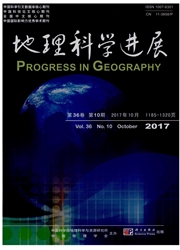

 中文摘要:
中文摘要:
本文从医学地理学两个主要分支——生态医学地理和保健地理领域入手,系统总结医学地理学研究内容与进展,并在文献阅读的基础上结合软件平台建立医学地理学的文献数据库,对高引用文献、高频词汇、作者国别和所属机构进行排名和识别。结果发现,医学地理学从关注"疾病"拓展到与"健康"相关的地理问题,研究的空间尺度从全球、国家、地方到社区再到建筑内部向更广泛和更细致发展,研究手段进一步丰富,更多空间分析技术和方法被应用。研究内容热点包括人类自身发展和社会经济活动对健康的影响,保健服务的空间关系、人们的保健行为对健康的影响,邻里环境尤其是社会经济因素对健康的影响,卫生与健康公平尤其是特殊群体的医疗服务问题。医学地理研究的学者来自医学和公共卫生相关研究机构的最多,其次是地理研究机构。大量的医学地理研究主要来自于美洲、欧洲等发达国家和中国、巴西等快速发展中的国家。本文认为医学地理学未来将向更广泛层面的福祉研究发展,研究的空间尺度将一步深化和细化,并加大对网络医疗等虚拟空间的深入研究,学科融合更广泛。
 英文摘要:
英文摘要:
In this paper, based on the discussions on the two main branches, ecological medical geography and health care geography, we reviewed current content and development process of medical geography. Through lit- erature study and use of a software platform, we established a database which helps identify and rank citation rates, vocabulary frequencies, authors' countries and affiliations. We argued that, in contrast to classic literature, medical geography studies in recent years expanded the focuses from "disease" to "health" related geographical issues; research horizons expanded from global to national, to local, to neighborhood, and even to the inner space of a building; more and more research tools became available, and more and more spatial analysis meth- ods have been used. The focuses of the studies of medical geography include: the impact of human development and socio-economic activities on health, spatial relationships between healthcare services, effects of healthcare behavior on the health conditions, the impacts of neighborhood environment, especially socio-economic condi- tions, health and healthcare equity issues, especially medical services and healthcare for the groups with special needs. The majority of the researchers are mainly from medical and public health fields, followed by the ones from geographic research institutions. Studies of medical geography are mainly in developed American and Eu- ropean countries, as well as the fast developing countries such as China, Brazil, and so on. This paper argued that research in medical geography should expand to a broader scope that includes the study of well-being; the spatial scale of the study would be widened, deepened, and expanded to the topics in virtual space such as on- line-base medical services; multidisciplinary researches would also be more widely adopted in the future.
 同期刊论文项目
同期刊论文项目
 同项目期刊论文
同项目期刊论文
 期刊信息
期刊信息
